Prioritise for: gaming, silent and media
centre systems
You have two choices when it comes to
storage: cheap, high-capacity mechanical hard disk drives (HDDs) or fast,
low-power, solid-state drives (SSDs). If you’re building a workstation, you can
pick up a 1TB HDD for a relatively low price, which should be more than enough
space to last the lifetime of the system. Compact PC buyers should look for
laptop-style 2.5” HDDs, which are slightly more expensive but necessary to save
space.
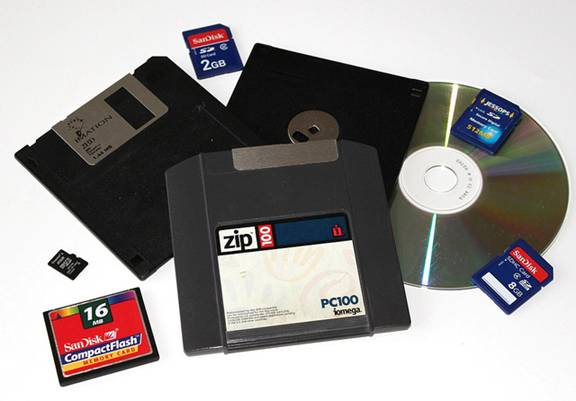
You
have two choices when it comes to storage: cheap, high-capacity mechanical hard
disk drives (HDDs) or fast, low-power, solid-state drives (SSDs).
However, if you’re running a gaming or
silent system, you want to make sure you choose an SSD because of their fast
access speeds. Gamers will find that they eliminate the data-access bottlenecks
that can seriously impair frame rates. Silent PC owners need to rely on their
lack of noise and heat compared to HDDs. Both, however, will have to sacrifice
capacity at enormous cost: 1TB SSDs don’t even exist commercially right now,
but if they did they’d cost almost ten times what a 1TB HDD does.
Media centre builders are advised to go for
a fast HDD, which combines the benefits of large, media-friendly capacity with
fast, streaming-friendly access speeds. Look for drives that do 10,000rpm at
least (standard drives do 7,200rpm). Finally, all users should avoid hybrid
SSD/HDD drives. They’re supposed to be the best of both worlds, but in reality
they bring the inconveniences of both as well.
Brand names to watch out for include
Seagate and Western Digital for HDDs, and Crucial, Kingston, Samsung and OCZ
for SSDs.
Graphics Chipsets
Prioritise for: gaming systems
Thanks to the generally high quality of the
graphics chipsets found on modern motherboards, most systems don’t need a
separate graphics card at all. However, if your motherboard doesn’t have a
graphics chip or if you want to play things in 3D without resorting to minimum
detail settings, you’ll need a separate graphics card.
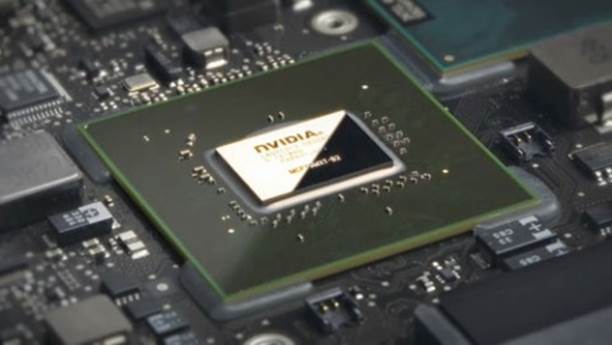
Thanks
to the generally high quality of the graphics chipsets found on modern
motherboards, most systems don’t need a separate graphics card at all.
Graphics cards are power-hungry and
expensive. This is because they contain secondary CPUs designed to process
nothing but the 3D visuals and pixel-transforming effects found in modern
games. The good news is that even a mediocre graphics card can turn a PC of
almost any stripe into a gaming-capable machine, since it takes the heavy
lifting off the CPU. The bad news is that if you want a good or recent one,
they get costly very quickly .
Those building a high-end gaming PC can
expect to spend at least as much on a graphics card as they did on the system’s
CPU, if not more. The absolute top-end machines run two graphics card using an
SLI or CrossFireX configuration, but you’ll need huge amounts of cash. You get
impressive performance, but it’s an easy way to see a grand disappear in
seconds.
Although enthusiasts and brand fanatics
might get upset at us saying it, most users will find that there’s no huge
difference between AMD’s Radeon and NVidia’s GeForce lines in terms of price
and performance. Unless you’re counting frames, get whichever one fits your
budget.
Power Supplies (PSUs)
Prioritise for: gaming and silent systems
Although most systems can get away with a
generic PSU (400-500W capacity should more than suffice) there are some
machines that require you to pay special attention to which PSU you select.
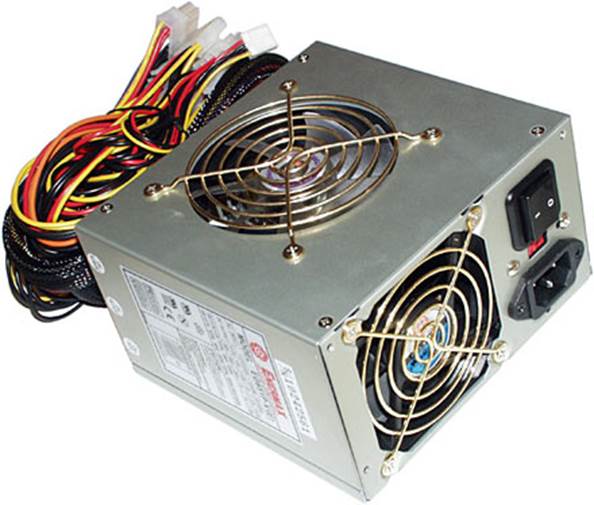
If
you buy a PSU that fits your power specs exactly, it’ll probably die quite
fast, assuming it’s ever capable of working at all!
Silent systems, for example, need
precision-engineered silent PSUs. The power supply’s cooling fan is a major
source of noise in any PC, and that means if you want your system to be quiet,
you need to get one that runs cool, has a high efficiency rating and ideally a
large, slow-moving fan to avoid noise. Brands like Antec and Corsair are worth
looking out for, and anything branded ‘quiet’ or ‘silent’ is, of course, a safe
bet. Don’t make the mistake of buying a fan-less PSU, though. These still
require cooling from an external source, which is less efficient and ultimately
noisier.
At the other end of the spectrum, gaming
systems need high-capacity PSUs to support their greater-than-average power
needs. Graphics cards and high-speed processors draw a lot of power, and the
systems run hot, so don’t even consider a PSU at less than 500W. It’s more
likely you’ll need a 650W or even 700W unit. Use an online component calculator
to check your system’s likely power draw, and then buy a PSU that has a couple
of hundred watts more just to allow for heat loss inefficiencies and future
wear. If you buy a PSU that fits your power specs exactly, it’ll probably die
quite fast, assuming it’s ever capable of working at all!
Extras To Consider
Putting together a PC doesn’t just mean
slapping together the minimum number of components. It means taking care to
craft one specific to your needs. All of these parts are technically optional,
but depending on what type of system you’re building, you may need to consider
them. It’s safe to say you’ll want to have some, if not all of them, so go
through the list and decide for yourself how important they are to you.
CPU Coolers
Prioritise for: gaming and silent systems
Any retail processor should come with a CPU
cooling fan that will help to keep it running at a safe, non-damaging
temperature. If you’re planning to tax your system to the extreme, though, or
want a PC that doesn’t contain a noisy fan, you should look into buying a more
sophisticated device.
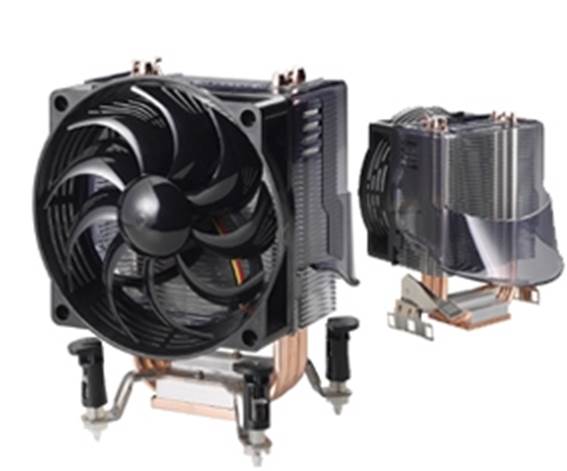
Any
retail processor should come with a CPU cooling fan that will help to keep it
running at a safe, non-damaging temperature.
Those building gaming PCs should look for
combination heatsink/fan assemblies that utilise larger fans and highly
conductive heat pipes to cope with the higher temperatures a stressed-out
gaming CPU is likely to run at. They won’t just extend the life of a taxed CPU,
they’ll also allow it to run faster by keeping its temperate at lower levels.
Silent PC builders, meanwhile, should be
aiming to install a liquid-cooling system, which combines liquid coolant with
larger, slower (and therefore quieter) fans. Some need no fans at all, making
them practically noiseless!
Brands to pay extra for include Antec,
Zalman and Corsair, but don’t worry too much, since any third-party cooler is
going to be an improvement over the one that comes in your processor box.
Sound Card
Prioritise for: gaming and media centre
systems
The on-board sound chipset included on most
motherboards is enough to do the basics, such as play audio from MP3s and
videos, record from microphone and auxiliary inputs, and support a standard
stereo or 2.1 speaker system. If, however, you’re looking for anything more
advanced, you’ll probably want to add a sound card into your setup.
Sound cards add extra effects and
processing capabilities, take the audio processing burden off the main CPU, and
allow you to add additional IO capabilities, such as optical or digital
formats, which can lower interference and improve the quality of your
computer’s audio.
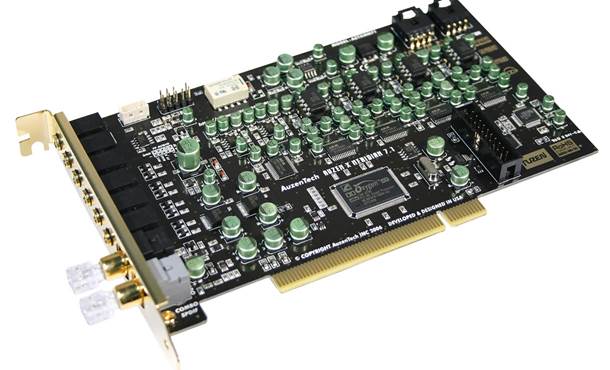
Sound
cards add extra effects and processing capabilities, take the audio processing
burden off the main CPU, and allow you to add additional IO capabilities
Although not an essential component in
gaming systems, they can prove useful if you have extra speakers or want to
free up your processor as much as possible. Those building a media centre,
however, will want the extra capabilities a good sound card offers: things like
Dolby surround sound and clearer, more powerful amplifiers.
Despite their long association with the
technology, try to avoid Creative cards, because they’re currently in a slump
and beset with technical errors. If you want high-end performance, look for
something from Asus’s Xonar line instead.